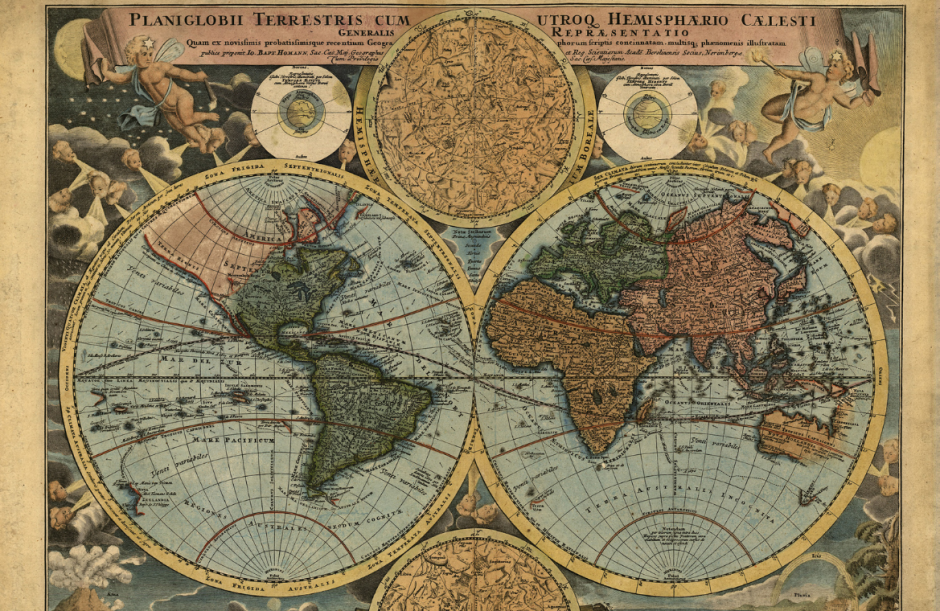Truth & Discovery: Spring 2022
If I asked you to play a word association game, and said “Discovery,” what would you say?
Maybe Archimedes and his “Eureka!” moment when he discovered density, or Isaac Newton’s discovery of gravity. Perhaps Marie Curie’s discovery of radiation, or Alexander Fleming’s discovery of Penicillin.
I am guessing that one popular and frequent response would be “Christopher Columbus and his discovery of the New World.” And, if I pressed that a bit, and asked a further question: “Was there anything else Columbus discovered or proved when he arrived on the shores of what we now call North America?” what would you say?
You would likely respond that, thanks to his dangerous voyage, Columbus proved that the world was round.
That response would be understandable. And it would also be wrong.
As historian of science Lawrence Principe writes, we can blame two 19th century writers—Andrew Dickson White and John William Draper—for “the idea that before Columbus people thought that the world was flat.” And they weren’t just a little bit off. As Principe writes, “the fact is that the sphericity of the Earth was well established by the fifth century BC by the Greeks, and a good measure of its circumference made by the third century BC. And these facts were never forgotten in learned Western Culture.”
I hear you saying: Wait? What? Why would they have done that? And how could they get it so wrong?
Well, the short version is—as former Faith & Life speaker James Hannam writes—that White and Draper wanted to “prove that science and religion are locked in eternal conflict.” They wanted to paint Columbus as the brave and courageous scientist, heroically working to prove the truth that the world was round in the face of the backwards and ignorant church leaders who were convinced it was flat.
You can read more about the intersection of faith and science—and the intentionally misleading and deeply flawed work of White and Draper—in a couple of articles that appear in this issue. My point here is that when it comes to cultural assumptions about the role of faith in our collective history, we should always check the facts.
We live in a skeptical world, and this skepticism often directs itself at issues of faith. And far too often, we Christians freely accept the cultural assumptions that paint Christianity as backwards, primitive and opposed to science. The false narrative about Columbus “proving” the world is round is just one particularly egregious example of this.
In one of my favorite essays by C.S. Lewis, he suggests that perhaps we should be a bit more open-minded—“agnostic” is the word he uses—about things that “everyone knows to be true.” He writes: “agnosticism is in a sense what I am preaching. I do not wish to reduce the sceptical element in your minds. I am only suggesting that it need not be reserved exclusively for the New Testament and the Creeds.” Instead, he concludes, “Try doubting something else.”
When you do, you may just discover this faith that we confess holds something precious and beautiful: namely, the Truth.
Searchingly,

















Chris Winfield, Inside Sales
in Profiles from SPDAsh Wednesday
in Life at St. PhilipAtheist Delusions
in What I'm ReadingThe Feast
in UncategorizedDomes, Epitaphs and Lasting Legacies
in Featured Reflections on the Life of FaithLent 2010: See
in Life at St. PhilipFirst Communion
in UncategorizedI Am Never Alone
in Uncategorized